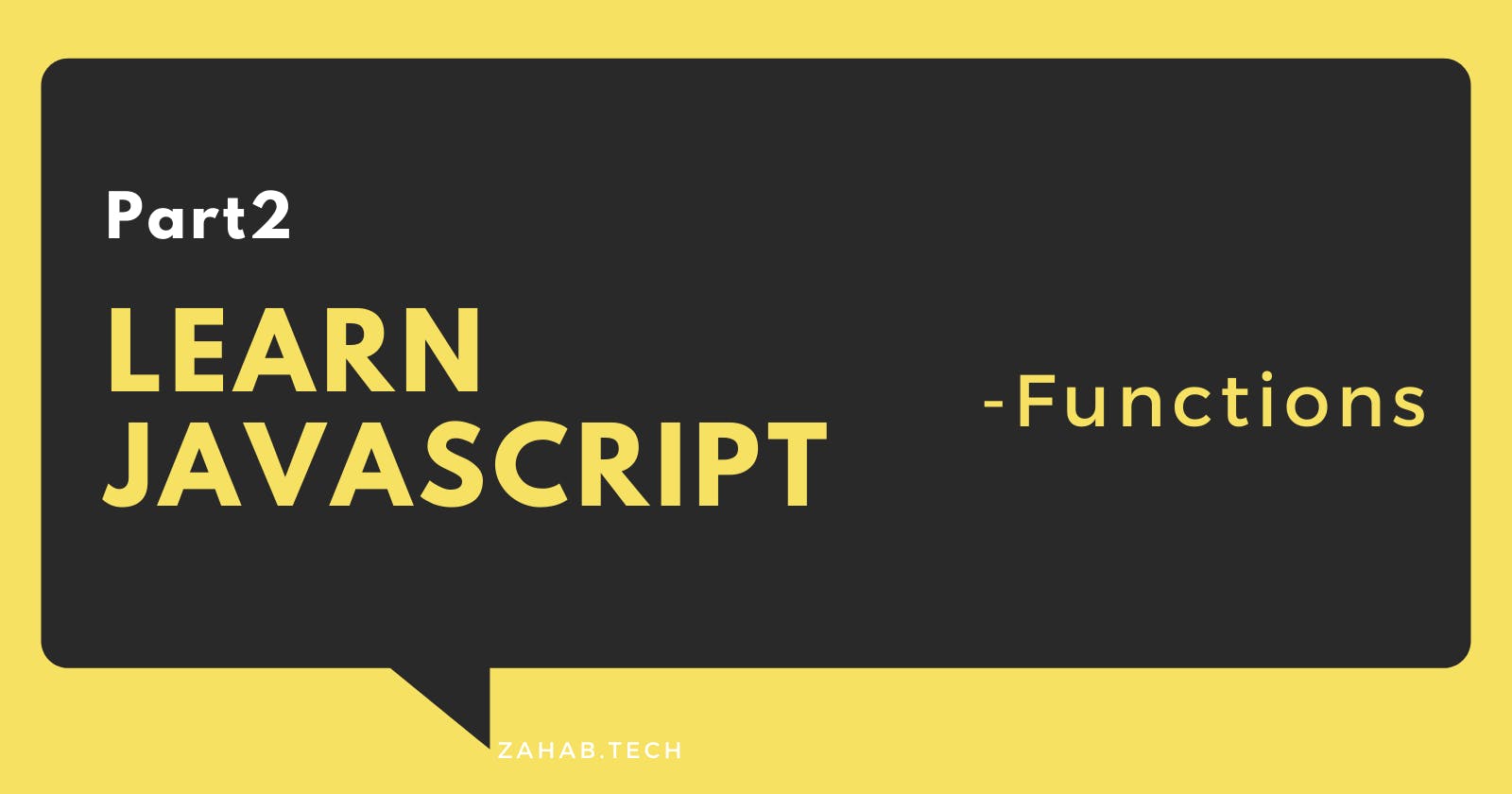Introduction
This article explains JavaScript function in detail and followed the previous JavaScript article Learn JavaScript__Part1. Therefore if you are not familiar with JS basics, you may check the mentioned articles.
What are Functions in JavaScript?
Functions are containers that hold reusable code and perform a particular task. Not just JavaScript but almost all programming languages have a concept of functions and every developer must deal with that while coding.
Functions are independent pieces of code and manage the large code. Before moving on how it performs a task, let's see how we can create a function.
In javaScript the function keyword is used to declare a function, to identify a function it should have a name. Here is the syntax for function declaration
function name(){
YOUR_CODE
}
Here is the example, the function "sayHi" can be created using a function keyword followed by "sayHi" [function name] and a set of parentheses, the function code will be written inside the curly braces. Whenever the function is called, it performs whatever instruction is written inside it, here I created this function that whenever it is called it should print I like JavaScript.
function sayHi(){
console.log("I like JavaScript")
}
sayHi();
// I like JavaScript
Here is another function example
function myFunction(){
console.log("Hello world");
let c = 3 + 5;
console.log(c);
}
myFunction();
/*
Hello world
8
*/
JavaScript functions can be used as reusable code. In below example, I don't need to type the code every time I need it, I can just call the function.
function myFunction(){
console.log("Hello world");
let c = 3 + 5;
console.log(c);
}
myFunction();
myFunction();
/*
Hello world
8
Hello world
8
*/
Functions also accept parameters - parameters are the symbolic name for "data" that goes into a function. A function can have one or more parameters.
In the below example, the function has a parameter called num, num accepts a value and performs the function task based on that value. The parameter value will be initialized while calling the function.
function myFunction(num){
console.log(num * num)
}
myFunction(3);
myFunction(10);
/* 9
100
*/
You don't need to console.log in functions, the " return " is used to return the function statements.
function myFunction(a, b){
return a + b;
}
console.log(myFunction(3, 5));
// 8
Conclusion
That is it for this article. I hope you found this article useful, if you need any help please let me know in the comment section.
Feel free to contact me on Twitter

